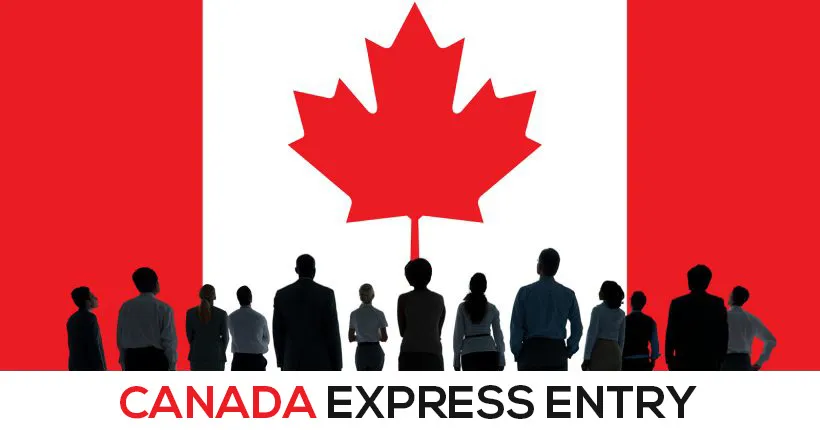Canada is a popular destination for immigrants, offering opportunities for a better quality of life, excellent healthcare, and a multicultural environment. One of the most sought-after immigration pathways is the Sponsorship VISA. This guide will walk you through the process, eligibility criteria, and requirements to help you navigate the Canada Sponsorship VISA system successfully.
What is a Canada Sponsorship VISA?
A Canada Sponsorship VISA allows Canadian citizens or permanent residents to sponsor their relatives (spouse, children, parents, or other family members) to become permanent residents of Canada. The Sponsorship Program is designed to reunite families and ensure that individuals in need of support can live in Canada with their loved ones.
Types of Sponsorship Visas for Immigrants
Canada offers several types of sponsorship visas, each designed for different family members or situations. These include:
Spouse or Common-Law Partner Sponsorship
- For spouses or common-law partners of Canadian citizens or permanent residents.
- The sponsor must prove that they can financially support their partner and meet basic living expenses.
Parent and Grandparent Sponsorship
- Allows Canadian citizens or permanent residents to sponsor their parents or grandparents for permanent residence.
- This program has specific quotas each year, and applicants must meet income requirements to demonstrate their ability to support the relative financially.
Dependent Child Sponsorship
- Canadian citizens and permanent residents can sponsor their dependent children under the age of 22.
- Special provisions apply for children over 22 who are unable to support themselves due to mental or physical conditions.
- Other Relatives Sponsorship
- In exceptional circumstances, Canadians can sponsor other relatives, such as siblings or nieces, if they are in a vulnerable situation and have no other family members to support them.
Eligibility Criteria for Sponsorship
To sponsor a relative for a Canadian visa, you, the sponsor, must meet certain requirements. Here are the key eligibility criteria:
Canadian Citizen or Permanent Resident Status
- You must be a Canadian citizen or a permanent resident living in Canada. Canadian citizens living abroad can also sponsor family members, but they must plan to return to Canada once the sponsorship is complete.
Age Requirement
- You must be at least 18 years old to be eligible to sponsor a relative.
Financial Stability
- As a sponsor, you need to prove that you have enough income to support the relative you’re sponsoring. For some sponsorship categories, you must meet the Low Income Measure (LIM) or Minimum Necessary Income (MNI) guidelines, which can vary based on the number of dependents in your household.
No Criminal Convictions
- Sponsors with a history of serious criminal convictions may be disqualified from sponsoring a relative.
Ability to Support
- You must agree to support the person you’re sponsoring for a set period (usually 3 to 10 years), depending on the relationship and the age of the sponsored person.
Step-by-Step Guide: How to Apply for Canada Sponsorship VISA
Step 1: Confirm Your Eligibility as a Sponsor
Before you start the sponsorship process, make sure you meet the eligibility requirements outlined above. This includes proving that you are financially stable enough to support the person you’re sponsoring.
Step 2: Gather the Required Documents
You will need to collect several documents, including:
- Proof of Canadian citizenship or permanent residence.
- Proof of relationship (marriage certificate, birth certificate, etc.).
- Evidence of financial capability (tax returns, pay stubs, etc.).
- Police certificates to prove you have no criminal background.
Step 3: Submit the Sponsorship Application
Once you’ve confirmed your eligibility and gathered the required documents, you can submit your application through the Immigration, Refugees, and Citizenship Canada (IRCC) website. Ensure that you carefully complete all forms and include all necessary documents to avoid delays.
Step 4: Wait for a Decision
After your application is submitted, it will be reviewed by the IRCC. This process can take several months, so it’s important to stay patient and monitor the status of your application.
Step 5: Complete Medical and Security Checks
Once your application is approved, the sponsored person will need to undergo a medical examination and a security check. This is to ensure that they meet health and security standards.
Step 6: Receive Your Decision
If everything goes smoothly, you will receive a decision on your application. If approved, the sponsored person will receive their permanent resident visa and can make plans to move to Canada.
Financial Requirements for Sponsorship
The financial requirement for sponsorship varies depending on the type of sponsorship and the size of your family. You must be able to support the person you’re sponsoring, ensuring that they will not need social assistance in Canada.
- For spouse sponsorship, there is generally no minimum income requirement, but you still need to prove that you can support your partner financially.
- For parent or grandparent sponsorship, you must meet the Minimum Necessary Income (MNI) guidelines, which are based on your household size.
- For dependent children, no income requirements apply, but you must provide evidence that you can meet their basic needs.
Processing Times for Sponsorship Visas
The processing time for a Canada Sponsorship VISA can vary depending on the type of application and the specific circumstances. As of 2024, processing times are:
- Spouse or Partner Sponsorship: 12 to 24 months.
- Parent or Grandparent Sponsorship: 24 to 36 months.
- Dependent Child Sponsorship: 12 to 18 months.
Common Challenges in Sponsorship Applications
- Incomplete Applications: Failing to submit the required documents can cause significant delays.
- Financial Insufficiency: If you don’t meet the minimum income requirement, your application may be rejected.
- Criminal Background: Criminal history can prevent you from being eligible to sponsor a relative.
- Miscommunication: Not fully understanding the sponsorship requirements can lead to mistakes in your application.
How to Avoid Mistakes and Ensure a Successful Sponsorship Application
- Consult an Immigration Lawyer: A professional can guide you through the process, ensuring all forms are correctly filled out and all necessary documents are submitted.
- Double-Check Documentation: Ensure that all documents are authentic, properly translated (if necessary), and complete.
- Understand the Income Requirements: Familiarize yourself with the Low Income Measure (LIM) or Minimum Necessary Income (MNI) guidelines for your specific situation.
- Be Patient: Understand that processing times can vary, and be prepared for delays.
Conclusion
Sponsoring a relative for a Canada Sponsorship VISA is a significant responsibility, but it offers an incredible opportunity to reunite families. By ensuring you meet the eligibility requirements, gathering the necessary documents, and understanding the sponsorship process, you can navigate the application successfully. While the process can be time-consuming, with proper preparation and attention to detail, your sponsorship application has a good chance of being approved.
FAQs on Canada Sponsorship VISA
- Can I sponsor a friend for a Canadian VISA?
No, the sponsorship program is strictly for family members, including spouses, children, parents, and in some cases, other relatives. - How much does the sponsorship application cost?
The cost of sponsoring a relative for permanent residence includes application fees, biometric fees, and processing fees. Check the official IRCC website for the most up-to-date fee schedule. - Can I sponsor my spouse if we are living outside of Canada?
Yes, Canadian citizens living abroad can sponsor their spouse or common-law partner, as long as they intend to return to Canada when the sponsorship is complete. - Can I be refused as a sponsor?
Yes, if you do not meet the eligibility requirements, such as income or criminal background checks, your application may be denied.
Published on: 27 de November de 2024

Emma Koro
Emma Koro is the founder of ogbeta.ng, a platform built to guide students and young professionals in navigating international opportunities. With a background in public policy and international relations, Emma Koro has spent years helping people secure scholarships, sponsorship visas, and financial planning strategies for studying abroad.
She believes that accessible, accurate information is a powerful tool for change. Her writing combines practical advice with strategic insights, crafted especially for those eager to take bold steps toward education and career development in countries around the world.


